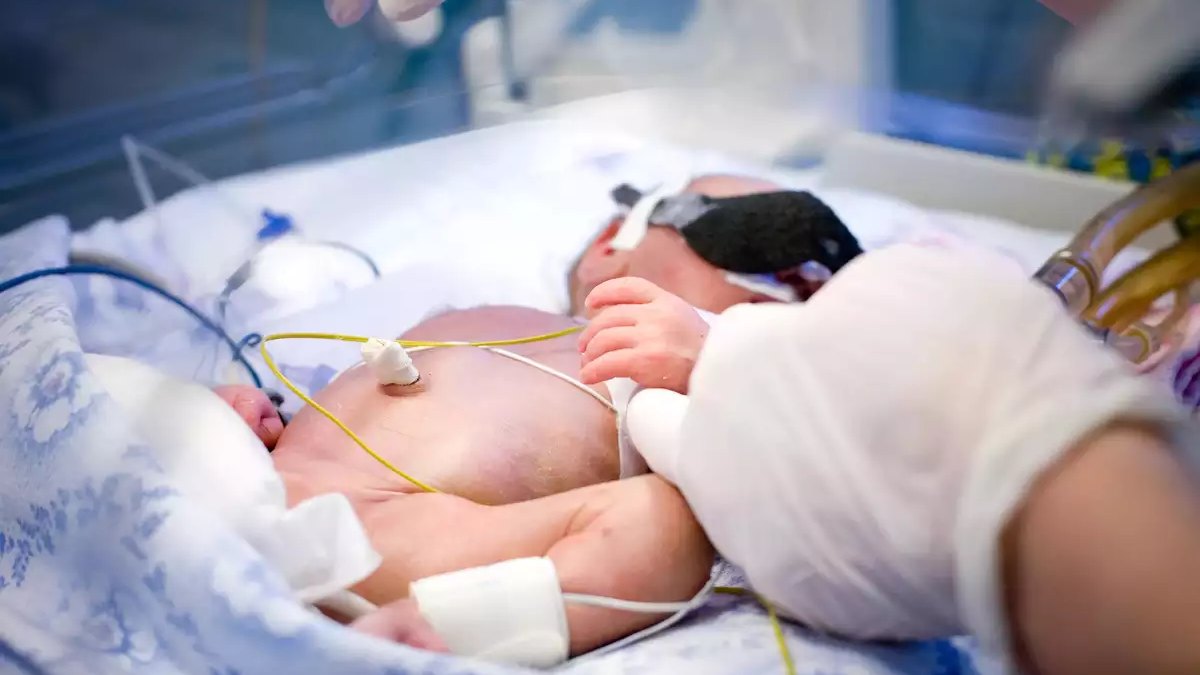The All India Institute of Medical Sciences (AIIMS) in New Delhi stands out among hospitals nationwide. Here, doctors are revered almost like deities by their patients. This was highlighted recently when a woman, who had tragically lost seven children in the womb and was on the brink of losing her eighth, found hope and support at AIIMS, akin to a sanctuary. What followed next was nothing short of miraculous.
A woman from a rural village in Haryana, devastated by the loss of seven unborn children, sought help at AIIMS. Despite discouragement from several doctors who believed she couldn’t bear children, she and her husband, after five years of marriage, decided to try again. As she embarked on her eighth pregnancy, she faced the same challenge: antibodies in her body threatening the life of her unborn child.
Dr. Nina Malhotra, Head of AIIMS’s Hematology and Obstetrics Department, discussed with News18 Hindi a case involving a woman who was hospitalized after experiencing sudden bleeding upon arrival from Japan. Dr. Malhotra detailed that upon reviewing her medical history, AIIMS conducted all necessary tests.
Besides diagnosing her critical RH-negative blood group, the Hematology Department at AIIMS conducted genetic analyses. They found that the woman’s RH-negative blood type was incompatible with her baby’s, and she also had antibodies potentially harmful to the baby. Consequently, the only viable option to save the baby was to perform an intrauterine blood transfusion.
RH negative blood group is exceedingly rare, with only one in a hundred thousand individuals possessing it, according to Dr. Nina. Despite thorough checks across India’s major hospitals and blood banks to find this blood type for a child in need, it was not available. Although an Indian individual with this blood group was identified in the international rare blood panel, they declined to donate. Subsequently, the request for this scarce blood type was submitted to the International Blood Registry, with the Red Cross Society of Japan noting its availability.
Also Read: Italian PM Meloni Pulls Biden Back At G7 Summit, Video Goes Viral
In 48 hours, blood reached India from Japan. Following this, 4 units of this blood were immediately sent to India. Within 48 hours, this blood reached India’s AIIMS, and it was transfused to the fetus inside the woman’s womb. Subsequently, the woman underwent delivery, and a healthy baby girl was born.
Several cases have been treated at AIIMS, but this one stands out as unprecedented. Dr. Nina explains that typically, the need for blood arises from accidents, surgeries, or pregnancies. AIIMS handles approximately 5 to 6 cases each week where the child does not receive blood from the mother, necessitating both to undergo blood transfusions. However, this particular instance marked the first time an RH negative mother and the child’s distinct genes were identified, prompting the sourcing of rare blood from abroad, which was then inserted into the child’s stomach to save its life.
Dr. Nina emphasizes that this case involved extensive efforts from AIIMS doctors, as well as the blood bank of AIIMS, NGOs, and social support systems. This collaborative effort enabled the rapid procurement of blood from Japan at an international level, following permissions obtained from various authorities in India, ultimately saving the child’s life.
Dr. Nina clarifies that this case dates back to last year when the woman presented herself at AIIMS. As it was the first instance in India where such genetic characteristics were identified, the rarest blood available internationally was sourced to ensure the child’s survival. This significant achievement has recently been documented in an international journal.
Also Read: Workers At Amazon Warehouse Swear Off No Toilet Or Water Breaks Until Goals Met













